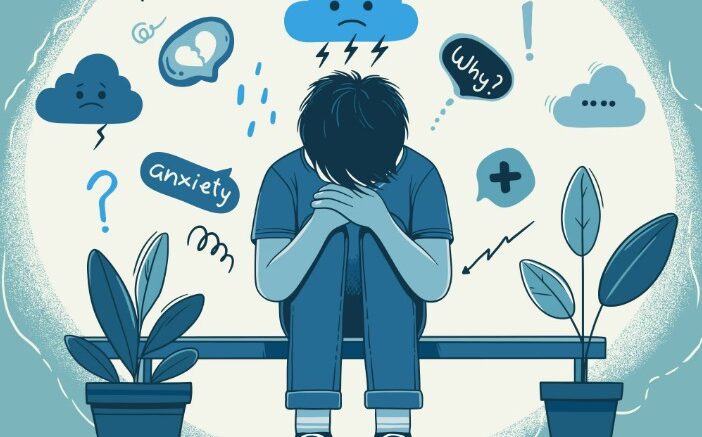What is anxiety disorder?
Anxiety disorder is a mental health condition characterized by excessive and persistent feeling of worry, fear, and anxiety that interfere with an individual’s daily life. It is the most common mental health condition globally, affecting over 400 million people worldwide. Anxiety disorder can affect anyone, regardless of age, gender, or background, and can have a significant impact on a person’s quality of life.
What are the different types of anxiety disorders?
Anxiety disorders include:
- Generalized anxiety disorder
- Panic disorder
- Social anxiety disorder
- Specific phobias
- Obsessive-compulsive disorder (OCD)
What causes anxiety disorder?
Anxiety disorders can be caused by a combination of genetic, environmental, and psychological factors, and can be triggered by stressful life events or traumatic experiences.
How common is anxiety disorder?
- Anxiety disorders affect over 400 million people worldwide (WHO, 2020).
- Anxiety disorders are the most common mental health condition globally, accounting for 40% of all mental health disorders (WHO, 2020).
- The global prevalence of anxiety disorders is highest among adults aged 18-49.
- Women are 60% more likely to develop anxiety disorders than men (WHO, 2020).
What are the symptoms of anxiety disorder?
The symptoms of anxiety disorders vary depending on the specific disorder, but common symptoms include:
- Persistent worry or fear
- Restlessness and irritability
- Difficulty concentrating
- Sleep disturbances
- Rapid heartbeat
- Avoidance behavior
How does anxiety affect daily life?
Anxiety disorder can affect various aspects of an individual’s life, including:
- Relationships: Anxiety can lead to social isolation, strained relationships with family and friends, and difficulty forming new connections.
- Work/School: Anxiety can impair performance, lead to absenteeism, and make it challenging to complete tasks and meet deadlines.
- Physical Health: Chronic anxiety can contribute to physical health issues, such as headaches, digestive problems, and sleep disturbances.
- Self-Esteem: Anxiety can lead to negative self-talk, self-doubt, and a loss of confidence.
- Personal Growth: Anxiety can hinder personal growth, self-improvement, and the pursuit of goals and aspirations.
What are the effective treatments to anxiety disorders?
Treatment options include:
- Cognitive-behavioral therapy (CBT)
- Medication
- Lifestyle changes
- Support groups
How can anxiety be successfully managed?
In addition to treatment, there are several things individuals can do to manage their anxiety, including:
- Practicing relaxation techniques such as deep breathing and progressive muscle relaxation
- Engaging in regular exercise
- Seeking support from friends and family
Conclusion
Anxiety disorders can have a significant impact on daily life, relationships, and overall well-being. However, with proper treatment and support, individuals can learn to manage their symptoms and improve their quality of life.
Frequently asked questions
Q1: How do I know if I’m experiencing anxiety or just stress?
A: While stress and anxiety share similar symptoms, anxiety is a more persistent and overwhelming feeling that can interfere with your daily life.
Q2: How can I help a loved one with an anxiety disorder?
A: Supporting a loved one with an anxiety disorder can be challenging, but it is essential to be patient, understanding and non-judgmental. Encourage them to seek professional help, offer emotional support and help them develop coping strategies.
Q3: Can anxiety disorder be prevented?
A: While anxiety disorder cannot be completely prevented, there are some steps to reduce your risks. Practicing stress management techniques, building a strong support network and seeking help when needed can help prevent anxiety disorder from developing.

